Edward Said
description: Palestinian-American academic, literary critic, and political activist
104 results
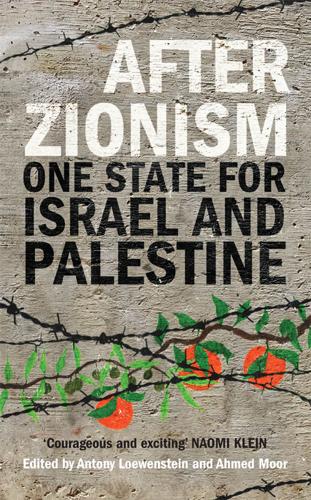
After Zionism: One State for Israel and Palestine
by Antony Loewenstein and Ahmed Moor · 14 Jun 2012 · 293pp · 89,712 words
of Palestine as a result of the emergence and success of the Zionist movement. Jews expelled, massacred, destroyed and raped in that year, and generally behaved like all the other colonialist movements operating in the Middle East and Africa since the beginning of the nineteenth century. In normal circumstances, as Edward Said recommended
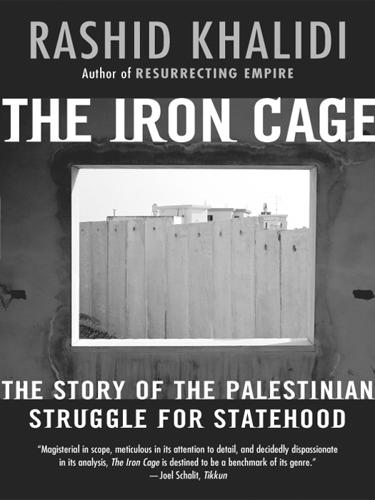
The Iron Cage: The Story of the Palestinian Struggle for Statehood
by Rashid Khalidi · 31 Aug 2006 · 357pp · 112,950 words
the PNC held in Algiers in 1988, in the form of the Palestinian Declaration of Independence. This document was drafted in its Arabic version by the preeminent Palestinian poet Mahmud Darwish, and in its English version by the distinguished Palestinian literary and cultural critic Edward Said. The declaration rhetorically proclaimed the establishment of an independent
…
of regarding, and of controlling, former colonies have been inherited by the new postcolonial hegemons, whether these means involve an Orientalist structure, as described by Edward Said, for knowing about, framing, describing, and thereby controlling the “other,” or whether they involve more active forms of manipulation of societies, economies, and polities.
…
Violence and Coexistence (New York: Columbia University Press, 2000). 9. Eminent Palestinian critics of the PLO and the PA include Dr. Haydar ‘Abd al-Shafi and Edward Said. See an interview with ‘Abd al-Shafi, “Looking Back, Looking Forward,” Journal of Palestine Studies 125 (autumn 2002): 28–35; and Said’s writings on the
…
extreme than in Israel. 15. Among those arguing the former was Edward Said, in the works cited in n. 9. The latter argument is made for example in Sayigh, Armed Struggle and the Search for State. 16. For further discussion of the Palestinian secular democratic state proposal, see Chapter 6. 17. This was
…
the few to do so was the late Edward Said, in a series of coruscating analytical articles later collected in the three volumes cited in n. 9. 19. I was one of several advisors to this delegation during its twenty months of existence. For Palestinian participant accounts see: Haydar ‘Abd al-Shafi, “
…
(Boulder, Colo.: Westview Press, 1987); 1986 Report: Demographic, Economic, Legal, Social and Political Developments in the West Bank (Boulder, Colo.: Westview Press, 1986). 42. See Edward Said’s From Oslo to Iraq and the Road Map, with a foreword by Tony Judt, as well as the latter’s article, “Israel: The Alternative
…
view is Salman Abu Sitta, author of Palestinian Right to Return: Sacred, Legal and Possible (London: Palestinian Return Centre, 1999), and Atlas of Palestine, 1948 (London: Palestine Land Society, 2004). 47. This, as well as moral considerations, seems to be the basis for the views of the late Edward Said, and of Tony Judt. 48. Among
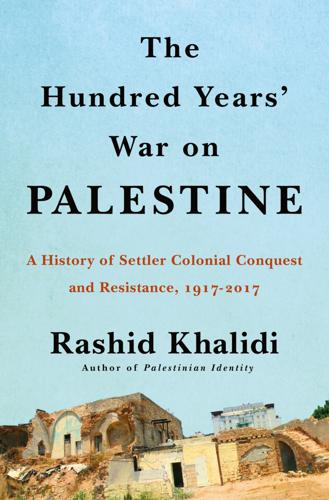
The Hundred Years' War on Palestine: A History of Settler Colonialism and Resistance, 1917–2017
by Rashid Khalidi · 28 Jan 2020 · 413pp · 120,506 words
map of the Middle East in spite of the best efforts of Israel, the United States, and many Arab governments, the Palestinians succeeded in reacquiring something long denied to them, what Edward Said called the “permission to narrate.” This meant the right to tell their story themselves, taking back control of it not
…
effective competing narrative generated by Israel and its supporters that equated “Palestinian” with “terrorist.”39 The PLO’s incapacity to understand the importance of these two vital arenas started with its top leadership. Respected Palestinian-American academics in the United States, notably Edward Said, Ibrahim Abu-Lughod, Walid Khalidi, Hisham Sharabi, Fouad Moughrabi, and
…
the United States after 1967. This was largely thanks to the efforts of the same group of Palestinian-American academics, who were effective in putting the Palestinian narrative before college campuses, the alternative media, and other sectors of public opinion. Edward Said in particular had an outsized impact, articulately making a case for the
…
, Ghassan al-Khatib, Zahira Kamal, Mustafa Barghouti, Rita Giacaman, Raji Sourani, and many others. Those outside of Palestine, among them Edward Said and Ibrahim Abu Lughod, had a similar impact. By the early 1990s, the unified Palestinian stance had successfully made it clear that the occupation was untenable, at least as it had functioned
…
impact of the intifada, the organization redoubled its efforts, culminating in the Palestinian Declaration of Independence adopted at a meeting of the Palestine National Council in Algiers on November 15. Drafted largely by Mahmoud Darwish, who was aided by Edward Said and the respected intellectual Shafiq al-Hout, the document formally abandoned the PLO
…
was not actually harmful to the Palestinian cause. Even before 1982, many in the PLO understood that the time had come to end the armed struggle. While still based in Lebanon, its leaders had tasked the distinguished Pakistani intellectual Eqbal Ahmad, a close friend of Edward Said and a friend of mine, with
…
and why the PLO should have ordered its envoys in Oslo to stand firm against such a Begin-style deal, which Edward Said rightly called “an instrument of Palestinian surrender, a Palestinian Versailles.”56 I am convinced that rejecting Israel’s bare-bones offer in Washington and Oslo would have been the right course
…
with Hussein as his middle name, who had been photographed with Edward Said, who was my neighbor and colleague at the University of Chicago, who declared a “new beginning” for the US in the Muslim world—surely he would deal differently with Palestine. These hopes sprung from the assumption that presidents have unlimited
…
Muslims (which is how Palestinians, even the Christians among them, are seen by many). The propagation of this image is one of the greatest achievements of Zionism and is vital to its survival. As Edward Said put it, Zionism triumphed in part because it “won the political battle for Palestine in the international world
…
my Brokers of Deceit. 56. “The Morning After,” London Review of Books 15, no. 20, October 21, 1993, https://www.lrb.co.uk/v15/n20/edward-said/the-morning-after. This deeply skeptical article was written at a time of near-universal euphoria over the 1993 signing ceremony of the Oslo Accords
…
the Palestinians, again in the late Baruch Kimmerling’s apt usage. 59. I was present and heard Gazit say this in response to a question from the audience during a panel discussion at Amherst College on March 4, 1994. CHAPTER 6 1. David Barsamian, The Pen and the Sword: Conversations with Edward Said
…
in the current atmosphere, his critique of Zionism might draw absurd accusations of anti-Semitism. 5. “Introduction,” Blaming the Victims: Spurious Scholarship and the Palestinian Question, ed. Edward Said and Christopher Hitchens (New York: Verso, 1988), 1. 6. These international efforts, closely coordinated by the Israeli Ministry of Strategic Affairs, focus in particular
…
of Palestine Inside Out: An Everyday Occupation ABOUT THE AUTHOR RASHID KHALIDI is the author of seven books, among them Palestinian Identity, Brokers of Deceit, and The Iron Cage. His writing has appeared in the New York Times, Boston Globe, Los Angeles Times, Chicago Tribune, and many other journals. He is the Edward Said
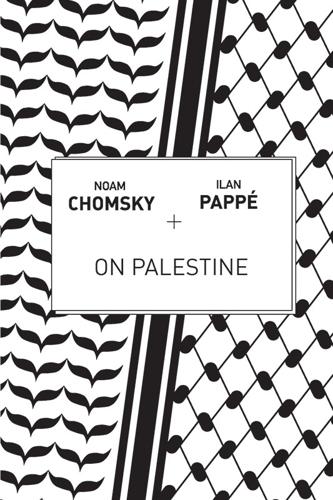
On Palestine
by Noam Chomsky, Ilan Pappé and Frank Barat · 18 Mar 2015
and what it was supposed to mean. I started with reading Chomsky and slowly became very interested in anything that had to do with Israel/Palestine. Reading Edward Said, Mahmoud Darwish, Ghassan Kanafani, John Berger, Tanya Reinhart, Ilan Pappé, Norman Finkelstein, Noam Chomsky, Kurt Vonnegut, Arundhati Roy, Naomi Klein . . . all became part
…
change the conversation in effective ways. In 1982, in the wake of Israel’s first invasion of Lebanon, Edward Said wrote an article titled “Permission to Narrate” in which he called upon the Palestinians to extend their struggle into the realm of representation and historical versions or narratives. The actual balance of political
…
and not follow the agenda of the other Palestinian groups. But if they adopt Haidar Eid’s position, that means that even they do not have the political power to change the reality now on the ground they still have the right, as Edward Said put it in 1982, “to narrate” their
…
is the only way forward. The problem is that not one Palestinian can live with this, hence the continuation of the conflict. FB: Edward Said died ten years ago. He was one of the last Palestinians, with Mahmoud Darwish, that the majority of the Palestinians looked up to. I know you knew him well. Can
…
you end by giving us a few words on Edward Said and the role he played during his
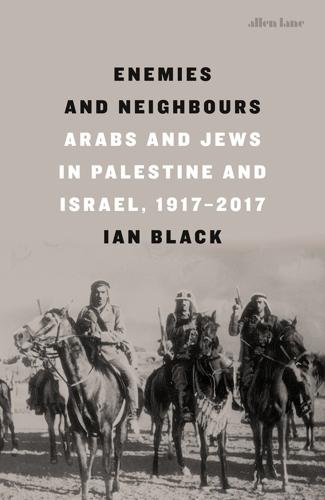
Enemies and Neighbours: Arabs and Jews in Palestine and Israel, 1917-2017
by Ian Black · 2 Nov 2017 · 674pp · 201,633 words
a familiar truth about how the conflict is perceived: Zionists have tended to focus on their intentions in immigrating to Palestine; Arabs on the results, and especially, in the words of Edward Said, of ‘having their territory settled by foreigners’.1 Anthropological and ethnographic research – conveying the texture of remembered experience – can be
…
to be a Palestinian, most famously in his 1964 poem ‘Identity Card’: Write down! I am an Arab And my identity card number is fifty thousand I have eight children And the ninth will come after a summer Will you be angry?36 The poem’s curious power, as Edward Said wrote later
…
get to permanent status, Israel will have permanently altered realities on the ground.’44 The American-Palestinian intellectual Edward Said attacked the ‘supine abjectness’ of the PLO, and argued that Israel’s leaders never intended to promote Palestinian self-determination and statehood, but rather to perpetuate the occupation and confine autonomy to strictly municipal
…
during a protest in the occupied West Bank city of Hebron, February 2017. Notes LANGUAGE MATTERS 1 Yusif Sayigh, Arab Economist, Palestinian Patriot, p. 190. PREFACE 1 Edward Said, The Question of Palestine, p. 81. 2 Elia Etkin, The ingathering of (non-human) exiles: the creation of the Tel Aviv Zoological Garden animal collection
…
to Beersheba. 34 Sari Nusseibeh, Once Upon a Country, p. 67. 35 Efrat Ben-Zeev, Remembering Palestine, p. 91. 36 Arabic/English text in http://www.barghouti.com/poets/darwish/bitaqa.asp. 37 Edward Said, The Question of Palestine, p. 155. 38 Sayigh, Armed Struggle, p. 88. 39 Andrew Gowers and Tony Walker, Behird
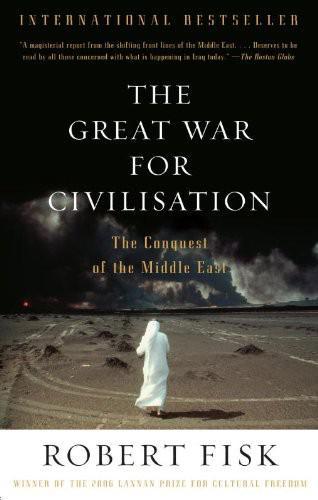
The Great War for Civilisation: The Conquest of the Middle East
by Robert Fisk · 2 Jan 2005 · 1,800pp · 596,972 words
Lara Marlowe, Irish Times, 4 November 2000, “Israel accused of turning peace process into a sham, backed by U.S.” 421 “the Pétain of the Palestinians”: Edward Said interview in Irish Times, 3 July 1999, “The Powerful Voice of the Outsider.” 426 As long ago as 1978: See The Times, 2 February 1978
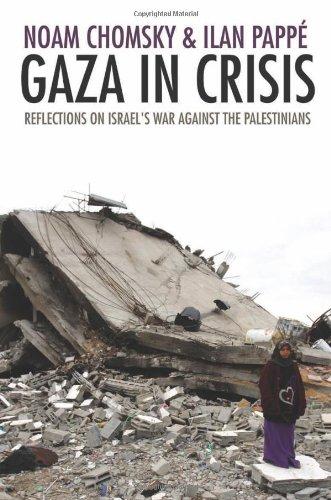
Gaza in Crisis: Reflections on Israel's War Against the Palestinians
by Ilan Pappé, Noam Chomsky and Frank Barat · 9 Nov 2010 · 279pp · 72,659 words
case of Israel-Palestine, a one-state solution will arise only on the U.S. model: with extermination or expulsion of the indigenous population. A sensible approach would be advocacy of a binational solution, recognizing that the territory now includes two fairly distinct societies. The second point is that Edward Said—an old
…
are not predictable: too much depends on will and choice. Would you agree with Edward Said when he said, “The most demoralising aspect of the Zionist-Palestinian conflict is the almost total opposition between the mainstream Israeli and Palestinian points of view…Might it not make sense for a group of universally respected historians
…
. In many ways, the second and third generations of missionaries became the first “Orientalists”—in the full negative meaning of the term. But even before Edward Said attracted our attention to this group, another Edward was warning, forty years before Said’s Orientalism appeared, of the dubious impact of the Orientalist missionary
…
his secretary of state were highly impressed by the Palestinian delegation and the leadership evolving around Orient House. Even before Madrid, the beginning of an American dialogue with the PLO in 1988—through the mediation of some American Palestinians, including the late Edward Said and Ibrahim Abu-Lughod—contributed to the continued improvement in
…
of Palestine as a result of the emergence and success of the Zionist movement. Jews expelled, massacred, destroyed, and raped in that year, and generally behaved like all the other colonialist movements operating in the Middle East and Africa since the beginning of the nineteenth century. In normal circumstances, as Edward Said recommended
…
be increased to infinity (all victims being defined as “terrorists”). I have also agreed all along with personal friends who had contacts with the Palestinian leadership (in particular, Edward Said and Eqbal Ahmad) that a nonviolent struggle would have had considerable prospects for success. And I think it still does, in fact, the
…
28, 2007. 7 Michael MccGwire, “The Rise and Fall of the NPT: an Opportunity for Britain,” International Affairs 81, no. 1 (2005): 115-40. 8 Edward Said, “Palestinians under Siege,” London Review of Books 22, no. 24 (December 14, 2000). 9 Marvin Kalb and Carol Saivetz, “The Israeli-Hezbollah War of 2006: The
…
.org/leupp02242007.html. CHAPTER THREE: STATE OF DENIAL 1 Edward Said, Culture and Imperialism (New York: Alfred K. Knopf, Inc., 1993). 2 The scope of the tragedy is well described in a collection of articles in Ghada Karmi and Eugene Cortran, eds., The Palestinian Exodus, 1948-1988 (London: Ithaca Press, 1999). 3 Pappé
…
shows how the complex history of the Palestinian Left before the Zionist destruction of historic Palestine was defined by secularism and solidarity between Arab and Jewish workers. With a new introduction and afterword by the author. • ISBN 9781608460724 The Pen and the Sword: Conversations with Edward Said David Barsamian, introductions by Eqbal Ahmad and
…
scholar and critic Edward Said, covering the Israeli-Palestinian conflict; Said’s groundbreaking work of literary scholarship, Orientalism; music; and much
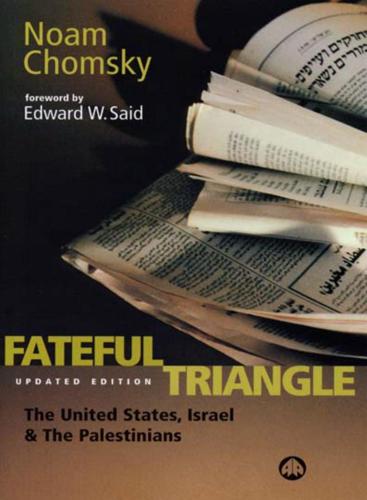
Fateful Triangle: The United States, Israel, and the Palestinians (Updated Edition) (South End Press Classics Series)
by Noam Chomsky · 1 Apr 1999
it happened to be the native village of the parents of U.S. Senator James Abourezk. According to Edward Said, the Ma’alot attack was “preceded by weeks of sustained Israeli napalm bombing of Palestinian refugee camps in southern Lebanon” with over 200 killed.12 It might also be noted that the taking
…
Post, July 23, 1982. See also David K. Shipler, New York Times, July 25, 1982. Ha’aretz, Davar, Nov. 2I: Davar. Nov. 22. 1982. Edward Said, Question of Palestine, pp. 172, 249. See below, pp.1901. On the Ma’alot attack, see Hirst, The Gun and the Olive Branch, pp. 329-30. See
…
responded with enthusiasm.” “Those who murdered Rabin, and those who incited them, didn’t do so because they opposed plans to create a Palestinian Bantustan,” the New Statesman correspondent reported from Jerusalem, chiding Edward Said for thinking otherwise. “No: they knew that the course Rabin was charting would lead, unless stopped, to a
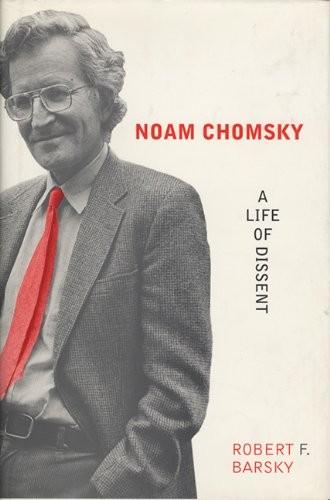
Noam Chomsky: A Life of Dissent
by Robert F. Barsky · 2 Feb 1997
in Europe, where antiSemitism was well entrenched and menacing. Like Avukahand indeed like Chomsky (from a Jewish perspective) and Edward Said (from a Palestinian perspective)Hashomer Hatzair believed in Arab-Jewish cooperation, first in Palestine and then in Israel. An example of this kind of cooperation is given in a report issued by the
…
complex than they are portrayed to be, and the facts are often difficult to procure. The Israeli situation is a good example: A personal friend, Edward Said, has also criticized me for not paying attention to Arab sources and looking at things always from the Jewish-Israeli-Western point of view, and
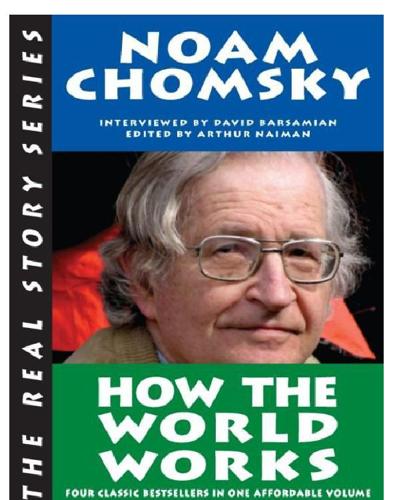
How the World Works
by Noam Chomsky, Arthur Naiman and David Barsamian · 13 Sep 2011 · 489pp · 111,305 words
tell you that, with many personal examples. The Mideast About 1980, you, Eqbal Ahmad [Pakistani scholar and activist, and professor at Hampshire College] and Edward Said [noted author, Palestinian activist and professor at Columbia] had a meeting with some top PLO officials. You’ve said you found this meeting rather revealing. Revealing, but
…
veiled antisemitic remarks in front of a public audience. The Israeli lobby backed off and the US did what it wanted. This is from Edward Said: “The crisis in Palestinian ranks deepens almost daily. Security talks between Israel and the PLO are advertised as a ‘breakthrough’ one day, stalled and deadlocked the next
…
society I can think of. Support for the Israeli-US position in the Middle East has been largely uniform among American intellectuals, except for yourself, Edward Said and a handful of others. What do you attribute that to? Things shifted very dramatically in 1967. The love affair between American intellectuals and Israel
…
of people don’t—they may even get poorer—and our military power helps things stay that way. In his book Representations of the Intellectual, Edward Said writes, “One of the shabbiest of all intellectual gambits is to pontificate about abuses in someone else’s society and to excuse exactly the same
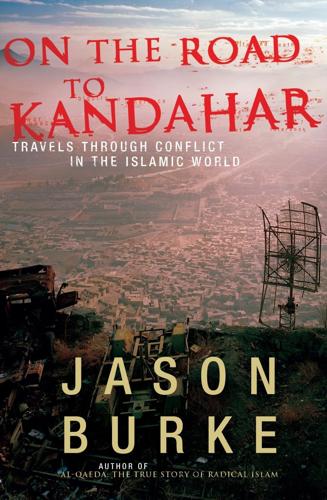
On the Road to Kandahar: Travels Through Conflict in the Islamic World
by Jason Burke · 21 May 2025 · 323pp · 108,377 words
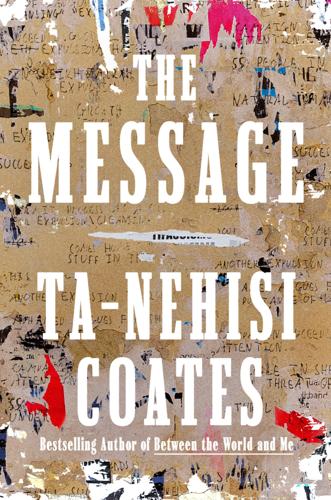
The Message
by Ta-Nehisi Coates · 2 Oct 2024 · 143pp · 49,411 words
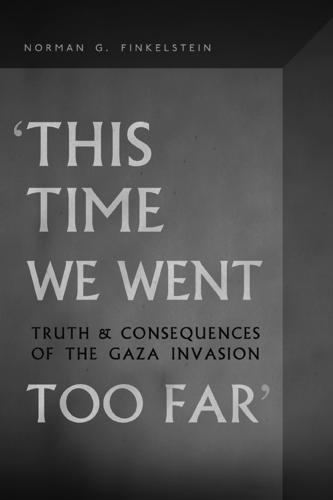
This Time We Went Too Far
by Norman G. Finkelstein · 1 Jan 2010 · 184pp · 55,923 words
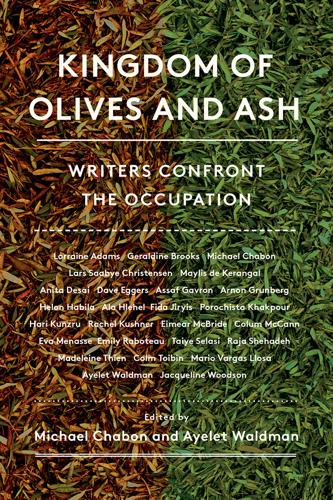
Kingdom of Olives and Ash: Writers Confront the Occupation
by Michael Chabon · 29 May 2017 · 517pp · 155,209 words

White City, Black City: Architecture and War in Tel Aviv and Jaffa
by Sharon Rotbard · 1 Jan 2005 · 351pp · 94,104 words
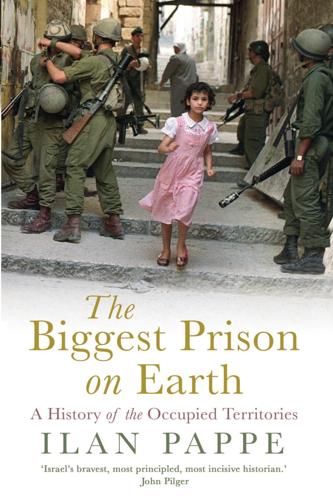
The Biggest Prison on Earth: A History of the Occupied Territories
by Ilan Pappé · 21 Jun 2017 · 356pp · 97,794 words
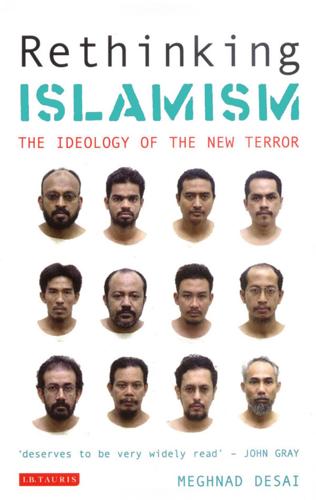
Rethinking Islamism: The Ideology of the New Terror
by Meghnad Desai · 25 Apr 2008
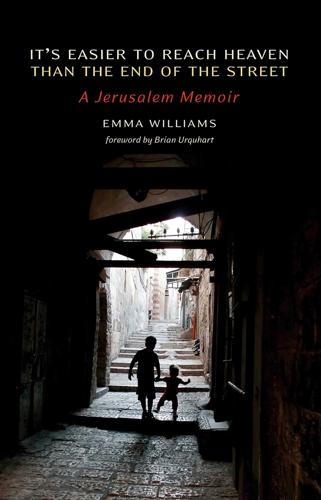
It's Easier to Reach Heaven Than the End of the Street: A Jerusalem Memoir
by Emma Williams · 7 Nov 2012 · 466pp · 150,362 words
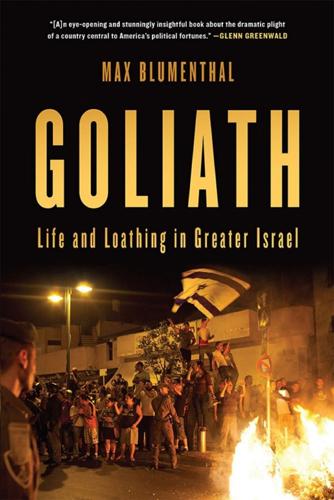
Goliath: Life and Loathing in Greater Israel
by Max Blumenthal · 27 Nov 2012 · 840pp · 224,391 words
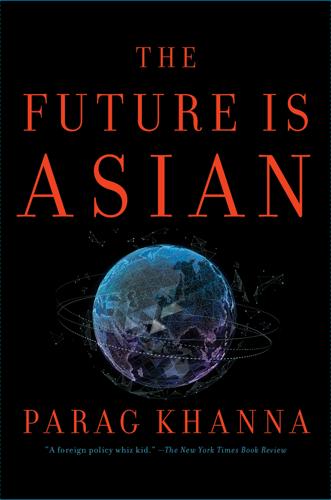
The Future Is Asian
by Parag Khanna · 5 Feb 2019 · 496pp · 131,938 words
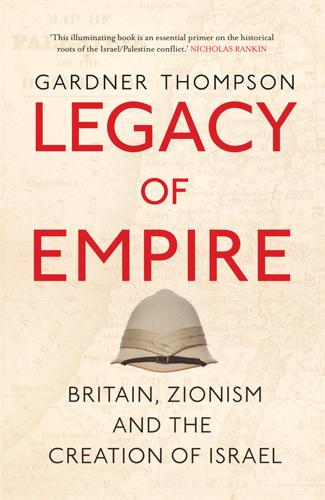
Legacy of Empire
by Gardner Thompson · 427pp · 114,531 words
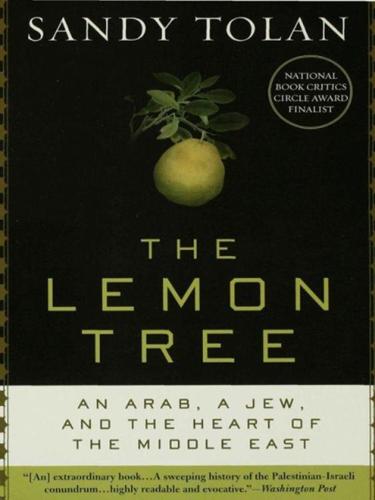
Lemon Tree: An Arab, a Jew, and the Heart of the Middle East
by Sandy Tolan · 1 Jan 2006 · 488pp · 150,477 words
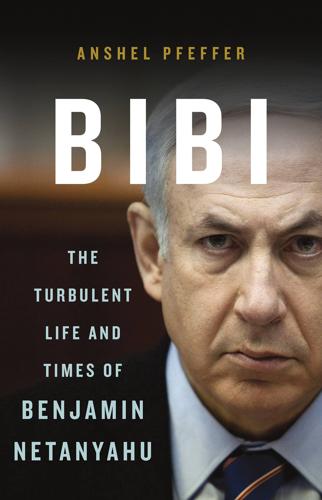
Bibi: The Turbulent Life and Times of Benjamin Netanyahu
by Anshel Pfeffer · 30 Apr 2018 · 530pp · 154,505 words
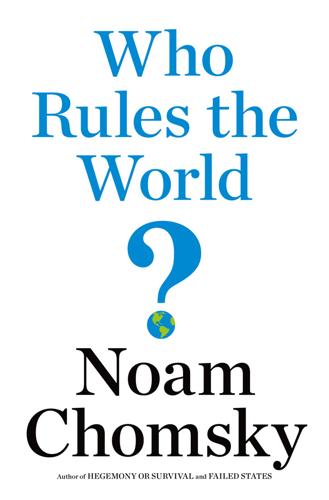
Who Rules the World?
by Noam Chomsky
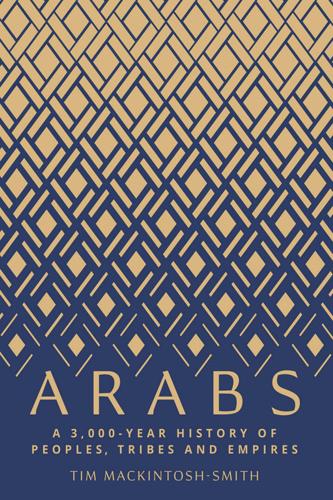
Arabs: A 3,000 Year History of Peoples, Tribes and Empires
by Tim Mackintosh-Smith · 2 Mar 2019
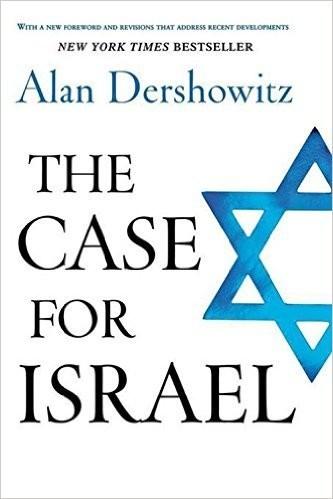
The Case for Israel
by Alan Dershowitz · 31 Jul 2003
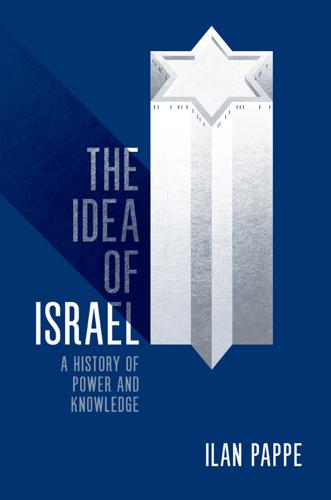
The Idea of Israel: A History of Power and Knowledge
by Ilan Pappe · 30 Apr 2012 · 387pp · 120,092 words
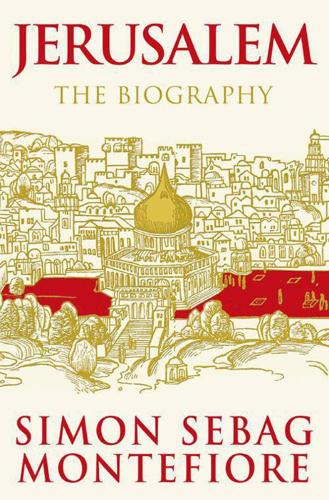
Jerusalem: The Biography
by Simon Sebag-Montefiore · 27 Jan 2011 · 1,364pp · 272,257 words
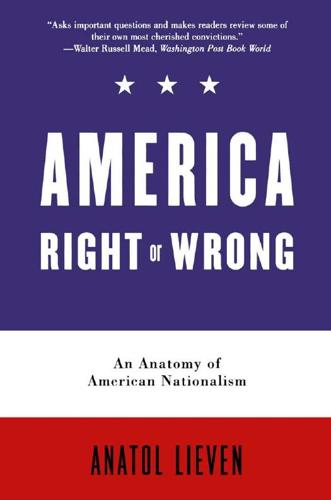
America Right or Wrong: An Anatomy of American Nationalism
by Anatol Lieven · 3 May 2010
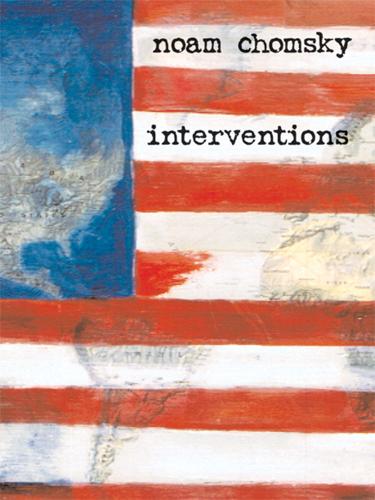
Interventions
by Noam Chomsky
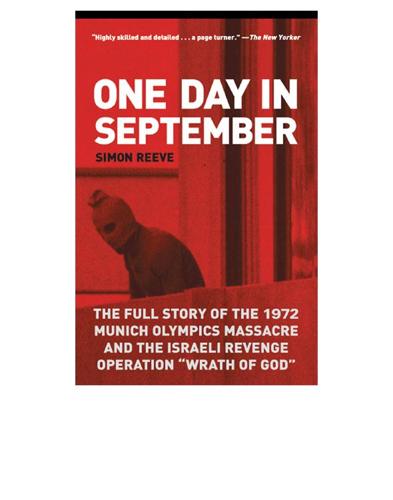
One Day in September
by Simon Reeve · 404pp · 119,055 words
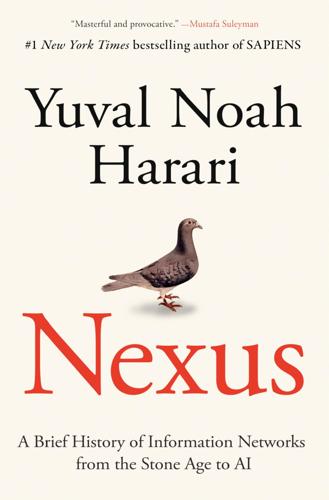
Nexus: A Brief History of Information Networks From the Stone Age to AI
by Yuval Noah Harari · 9 Sep 2024 · 566pp · 169,013 words
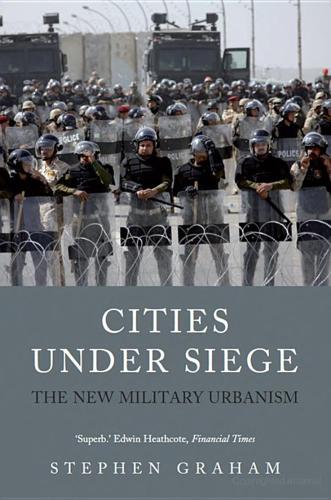
Cities Under Siege: The New Military Urbanism
by Stephen Graham · 30 Oct 2009 · 717pp · 150,288 words
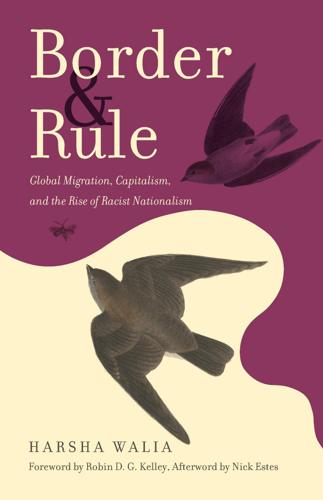
Border and Rule: Global Migration, Capitalism, and the Rise of Racist Nationalism
by Harsha Walia · 9 Feb 2021
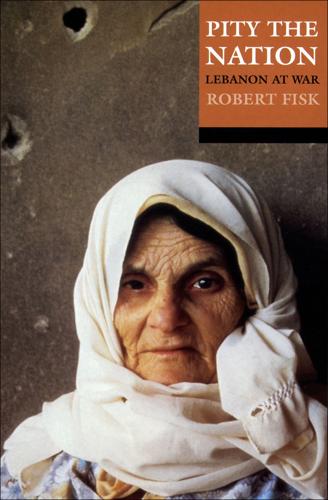
Pity the Nation: Lebanon at War
by Robert Fisk · 1 Jan 1990 · 1,208pp · 364,966 words
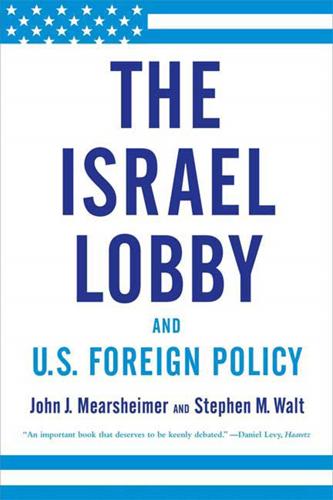
The Israel Lobby and U.S. Foreign Policy
by John J. Mearsheimer and Stephen M. Walt · 3 Sep 2007 · 801pp · 229,742 words
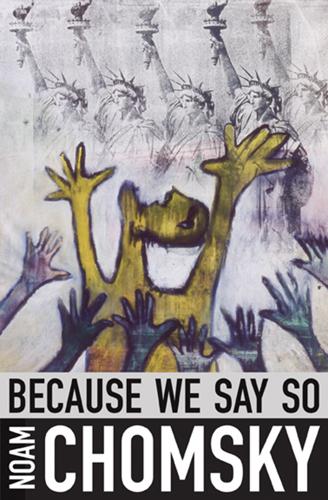
Because We Say So
by Noam Chomsky
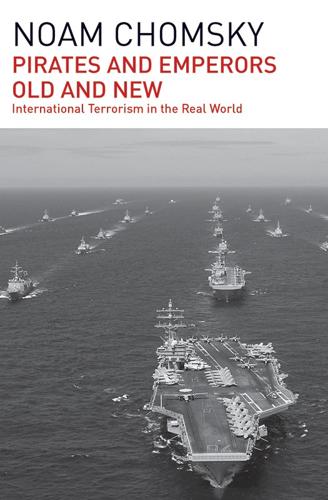
Pirates and Emperors, Old and New
by Noam Chomsky · 7 Apr 2015
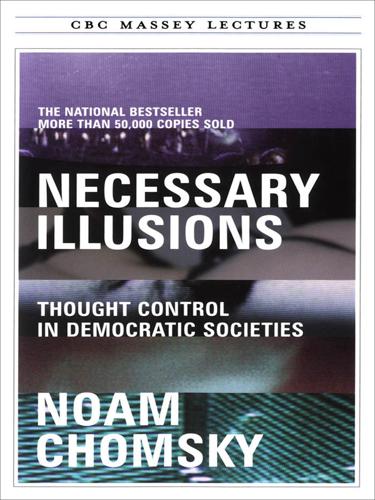
Necessary Illusions
by Noam Chomsky · 1 Sep 1995
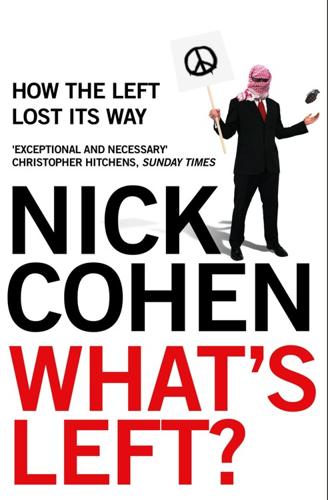
What's Left?: How Liberals Lost Their Way
by Nick Cohen · 15 Jul 2015 · 414pp · 121,243 words

Doppelganger: A Trip Into the Mirror World
by Naomi Klein · 11 Sep 2023
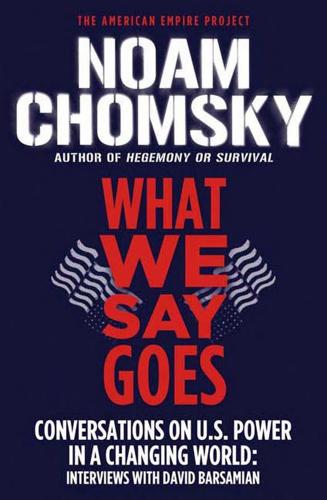
What We Say Goes: Conversations on U.S. Power in a Changing World
by Noam Chomsky and David Barsamian · 1 Oct 2007
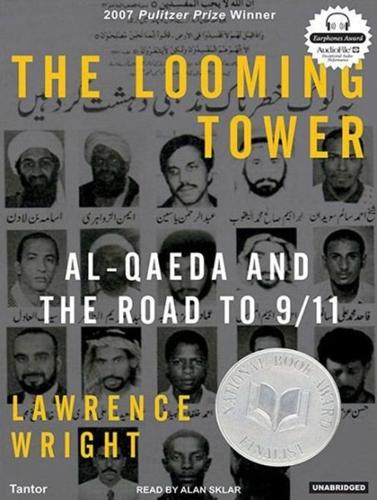
The Looming Tower: Al-Qaeda and the Road to 9/11
by Lawrence Wright · 26 Sep 2006 · 604pp · 177,329 words
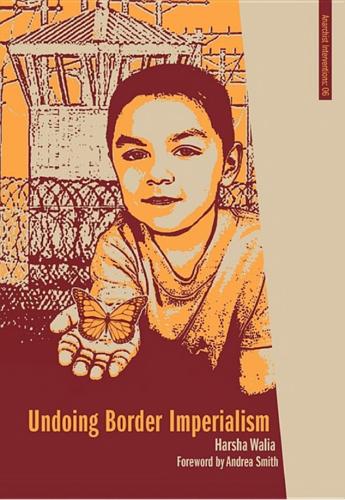
Undoing Border Imperialism
by Harsha Walia · 12 Nov 2013 · 258pp · 69,706 words
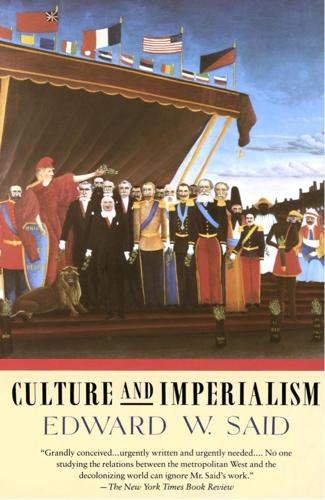
Culture and Imperialism
by Edward W. Said · 29 May 1994 · 549pp · 170,495 words
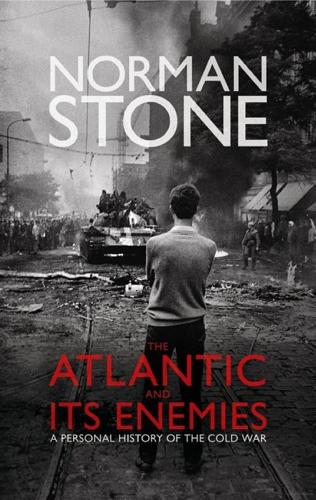
The Atlantic and Its Enemies: A History of the Cold War
by Norman Stone · 15 Feb 2010 · 851pp · 247,711 words
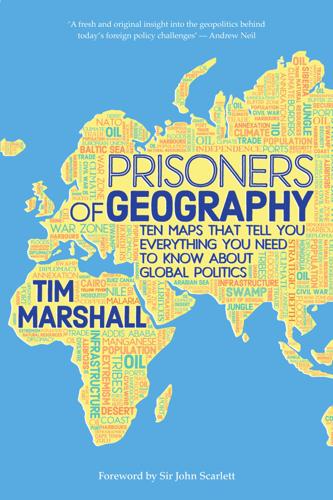
Prisoners of Geography: Ten Maps That Explain Everything About the World (Politics of Place)
by Tim Marshall · 10 Oct 2016 · 306pp · 79,537 words
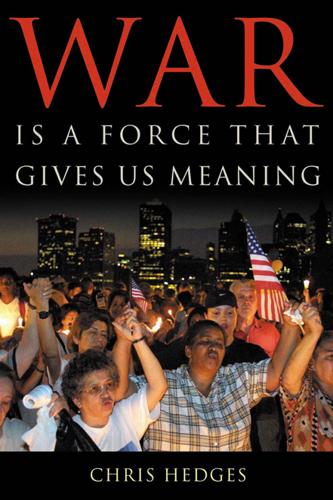
War Is a Force That Gives Us Meaning
by Chris Hedges · 31 Aug 2002 · 218pp · 61,301 words
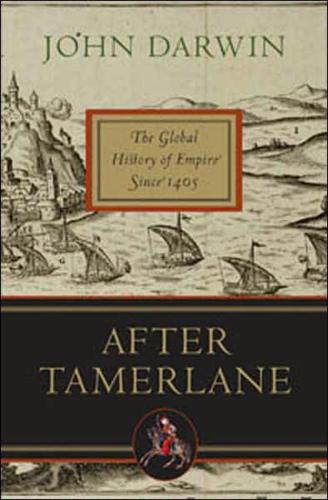
After Tamerlane: The Global History of Empire Since 1405
by John Darwin · 5 Feb 2008 · 650pp · 203,191 words
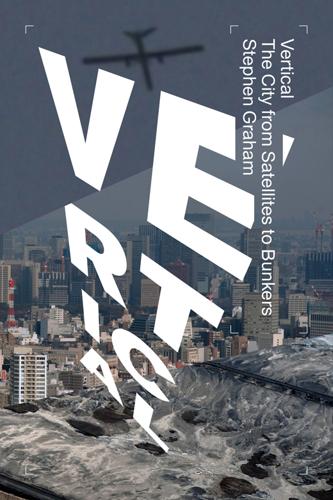
Vertical: The City From Satellites to Bunkers
by Stephen Graham · 8 Nov 2016 · 519pp · 136,708 words
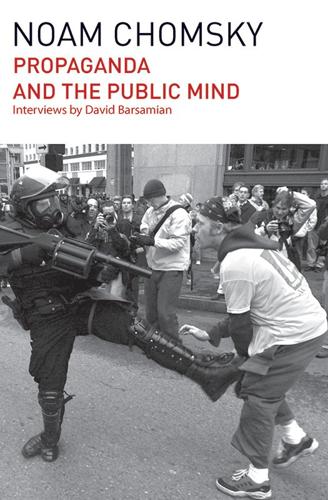
Propaganda and the Public Mind
by Noam Chomsky and David Barsamian · 31 Mar 2015
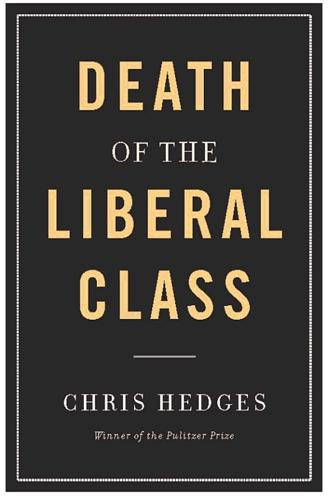
Death of the Liberal Class
by Chris Hedges · 14 May 2010 · 422pp · 89,770 words
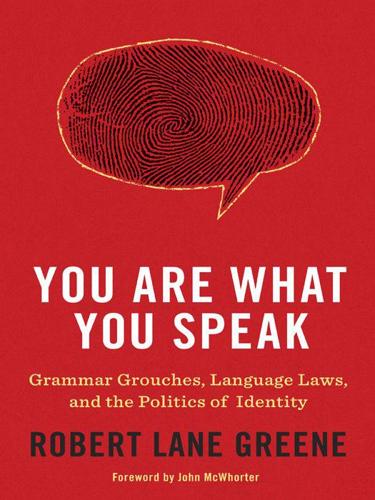
You Are What You Speak: Grammar Grouches, Language Laws, and the Politics of Identity
by Robert Lane Greene · 8 Mar 2011 · 319pp · 95,854 words
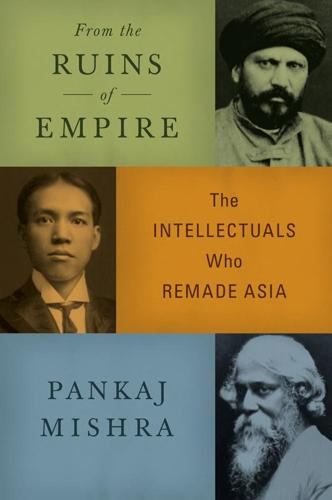
From the Ruins of Empire: The Intellectuals Who Remade Asia
by Pankaj Mishra · 3 Sep 2012
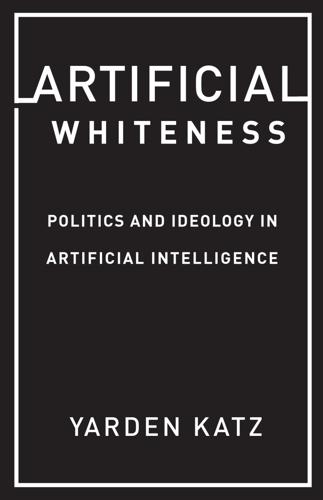
Artificial Whiteness
by Yarden Katz
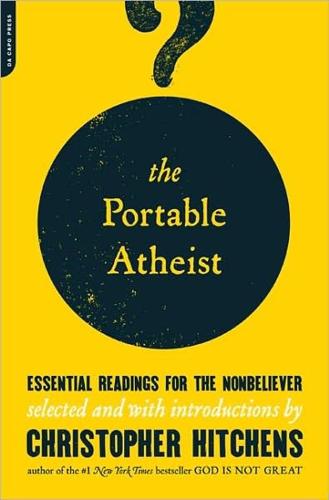
The Portable Atheist: Essential Readings for the Nonbeliever
by Christopher Hitchens · 14 Jun 2007 · 740pp · 236,681 words
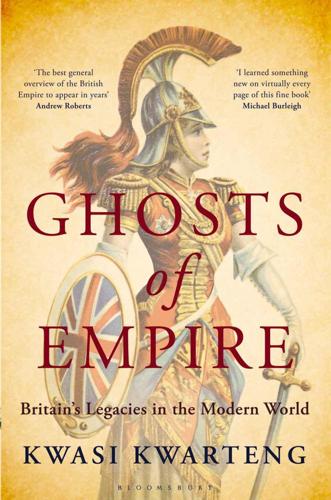
Ghosts of Empire: Britain's Legacies in the Modern World
by Kwasi Kwarteng · 14 Aug 2011 · 670pp · 169,815 words
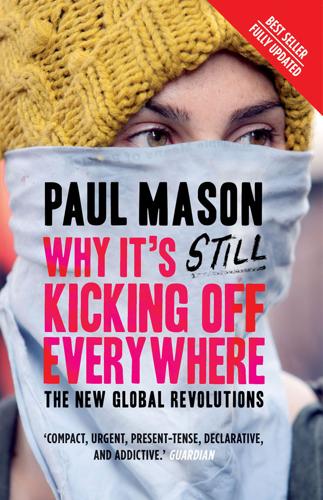
Why It's Still Kicking Off Everywhere: The New Global Revolutions
by Paul Mason · 30 Sep 2013 · 357pp · 99,684 words
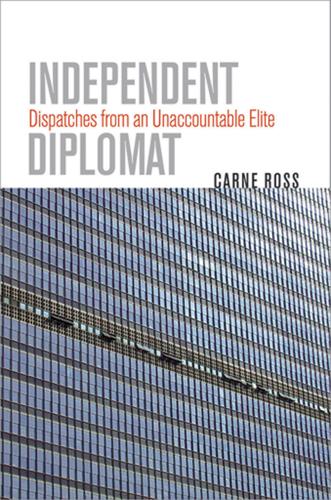
Independent Diplomat: Dispatches From an Unaccountable Elite
by Carne Ross · 25 Apr 2007 · 212pp · 68,690 words
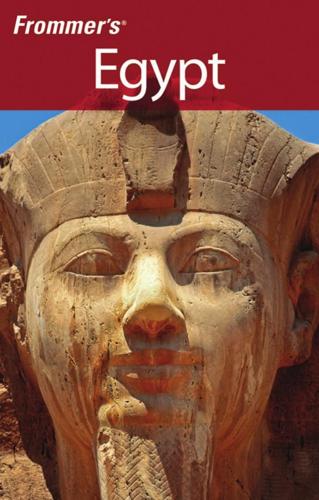
Frommer's Egypt
by Matthew Carrington · 8 Sep 2008
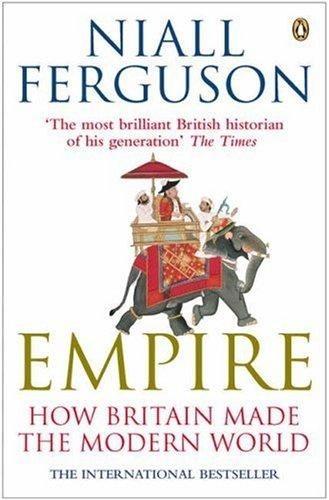
Empire: How Britain Made the Modern World
by Niall Ferguson · 1 Jan 2002 · 469pp · 146,487 words
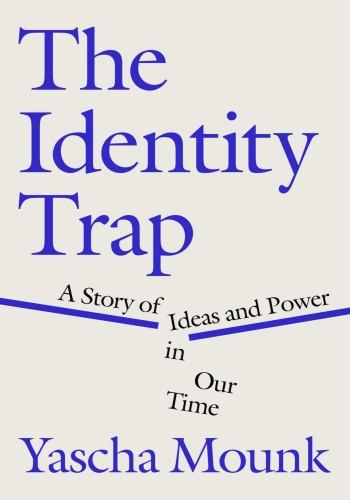
The Identity Trap: A Story of Ideas and Power in Our Time
by Yascha Mounk · 26 Sep 2023
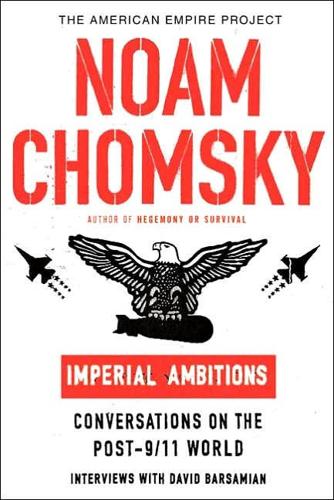
Imperial Ambitions: Conversations on the Post-9/11 World
by Noam Chomsky and David Barsamian · 4 Oct 2005 · 165pp · 47,405 words
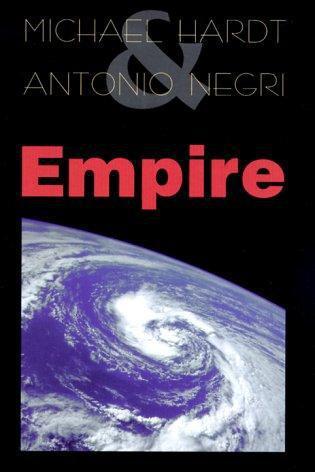
Empire
by Michael Hardt and Antonio Negri · 9 Mar 2000 · 1,015pp · 170,908 words
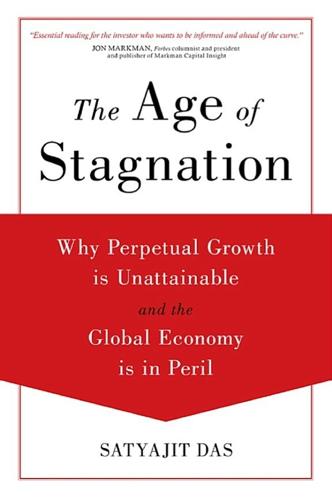
The Age of Stagnation: Why Perpetual Growth Is Unattainable and the Global Economy Is in Peril
by Satyajit Das · 9 Feb 2016 · 327pp · 90,542 words
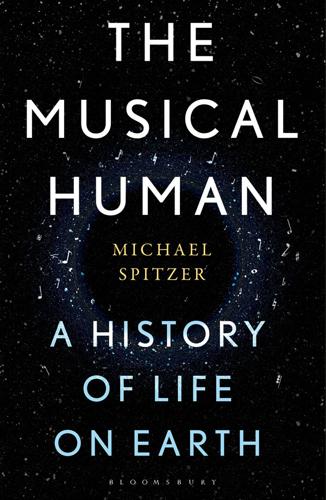
The Musical Human: A History of Life on Earth
by Michael Spitzer · 31 Mar 2021 · 632pp · 163,143 words
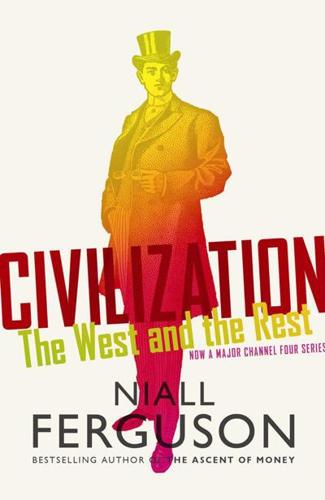
Civilization: The West and the Rest
by Niall Ferguson · 28 Feb 2011 · 790pp · 150,875 words
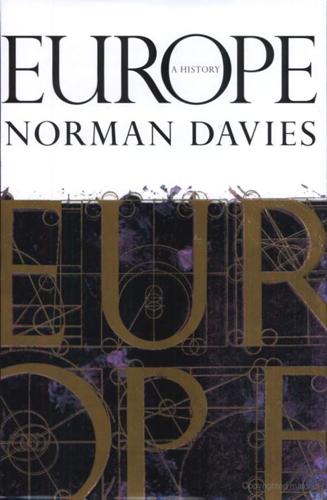
Europe: A History
by Norman Davies · 1 Jan 1996
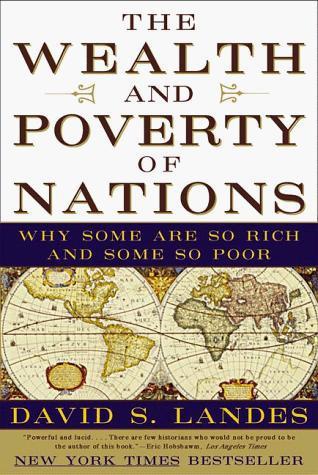
The Wealth and Poverty of Nations: Why Some Are So Rich and Some So Poor
by David S. Landes · 14 Sep 1999 · 1,060pp · 265,296 words
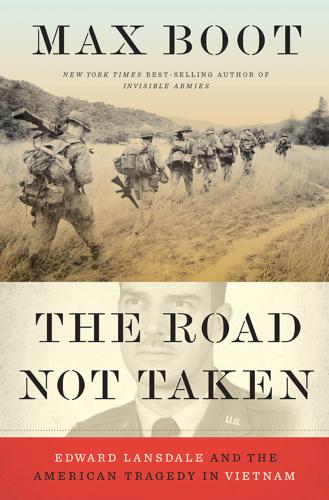
The Road Not Taken: Edward Lansdale and the American Tragedy in Vietnam
by Max Boot · 9 Jan 2018 · 972pp · 259,764 words

The View From Flyover Country: Dispatches From the Forgotten America
by Sarah Kendzior · 24 Apr 2015 · 172pp · 48,747 words
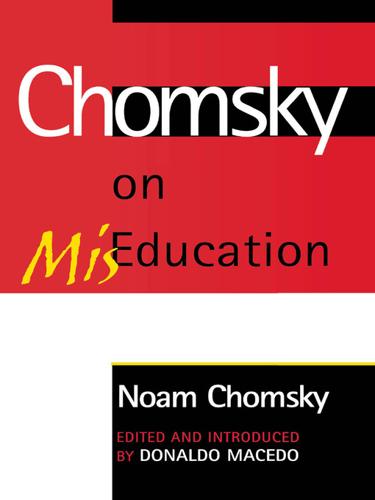
Chomsky on Mis-Education
by Noam Chomsky · 24 Mar 2000
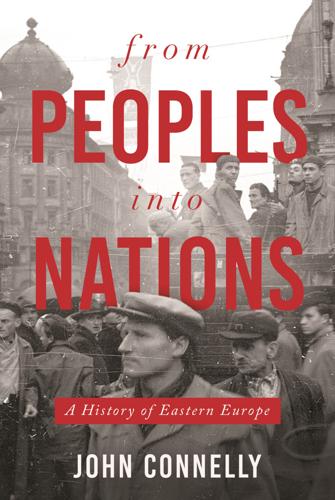
From Peoples into Nations
by John Connelly · 11 Nov 2019
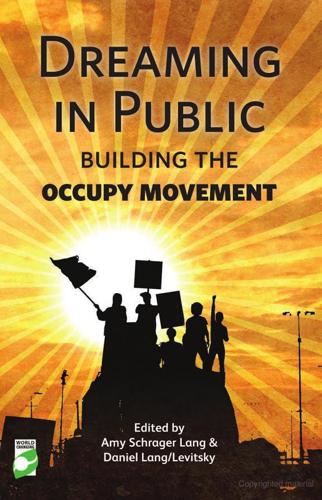
Dreaming in Public: Building the Occupy Movement
by Amy Lang and Daniel Lang/levitsky · 11 Jun 2012 · 537pp · 99,778 words
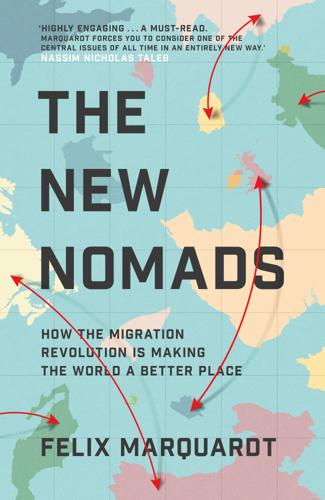
The New Nomads: How the Migration Revolution Is Making the World a Better Place
by Felix Marquardt · 7 Jul 2021 · 250pp · 75,151 words
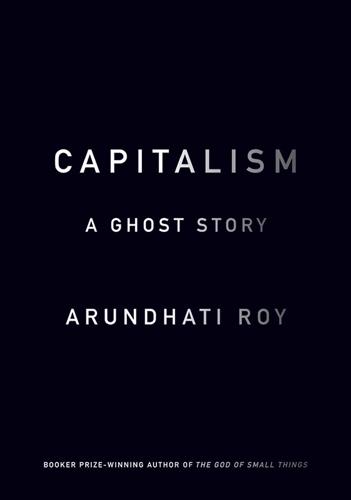
Capitalism: A Ghost Story
by Arundhati Roy · 5 May 2014 · 91pp · 26,009 words
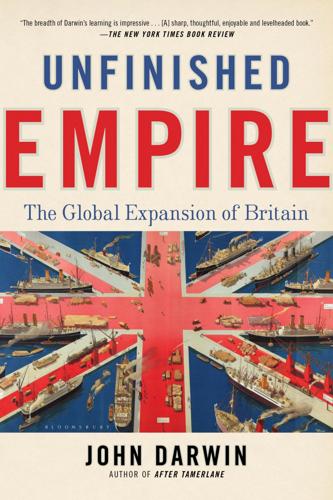
Unfinished Empire: The Global Expansion of Britain
by John Darwin · 12 Feb 2013
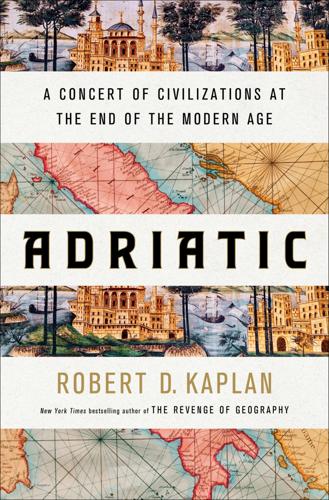
Adriatic: A Concert of Civilizations at the End of the Modern Age
by Robert D. Kaplan · 11 Apr 2022 · 500pp · 115,119 words
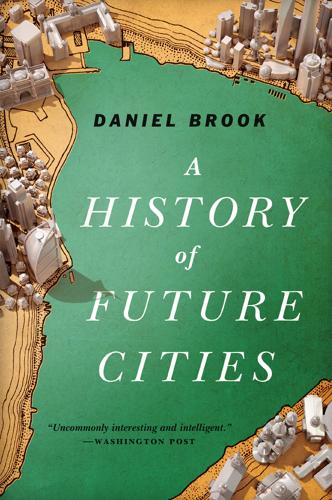
A History of Future Cities
by Daniel Brook · 18 Feb 2013 · 489pp · 132,734 words
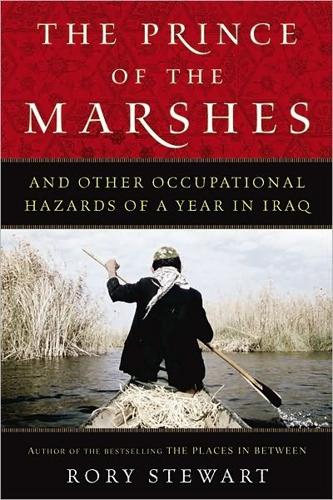
The Prince of the Marshes: And Other Occupational Hazards of a Year in Iraq
by Rory Stewart · 1 Jan 2005 · 407pp · 123,587 words
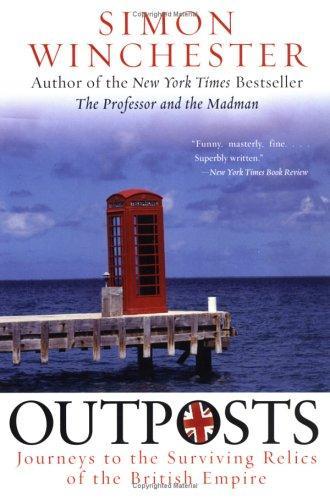
Outposts: Journeys to the Surviving Relics of the British Empire
by Simon Winchester · 31 Dec 1985 · 382pp · 127,510 words
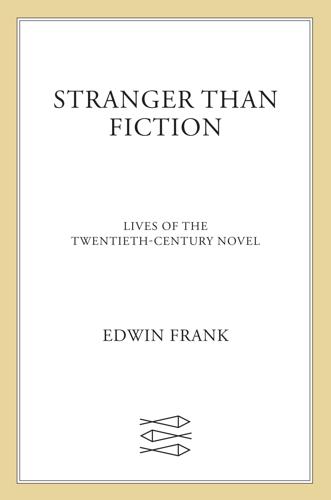
Stranger Than Fiction: Lives of the Twentieth-Century Novel
by Edwin Frank · 19 Nov 2024 · 467pp · 168,546 words
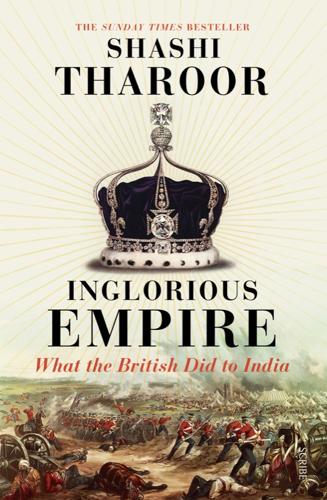
Inglorious Empire: What the British Did to India
by Shashi Tharoor · 1 Feb 2018 · 370pp · 111,129 words
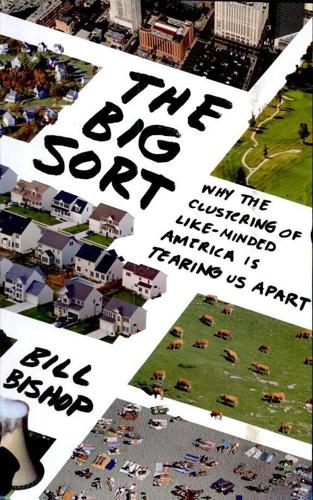
The Big Sort: Why the Clustering of Like-Minded America Is Tearing Us Apart
by Bill Bishop and Robert G. Cushing · 6 May 2008 · 484pp · 131,168 words
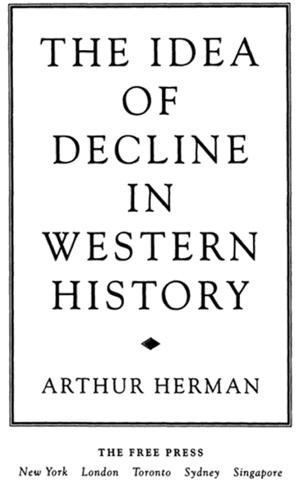
The Idea of Decline in Western History
by Arthur Herman · 8 Jan 1997 · 717pp · 196,908 words
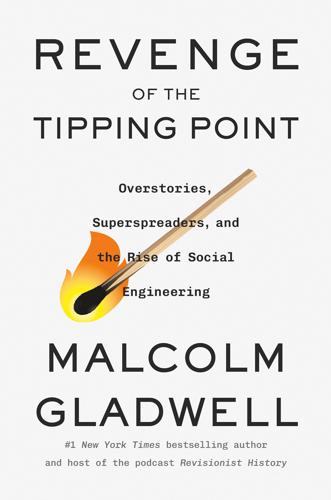
Revenge of the Tipping Point: Overstories, Superspreaders, and the Rise of Social Engineering
by Malcolm Gladwell · 1 Oct 2024 · 283pp · 85,644 words
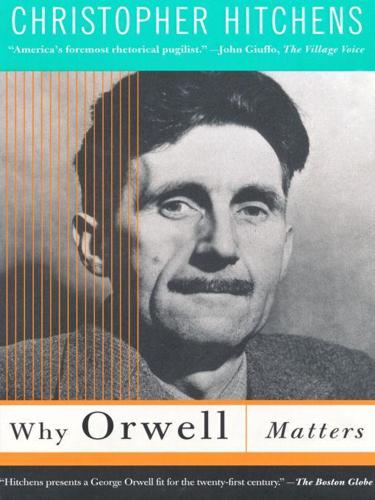
Why Orwell Matters
by Christopher Hitchens · 1 Jan 2002 · 184pp · 54,833 words
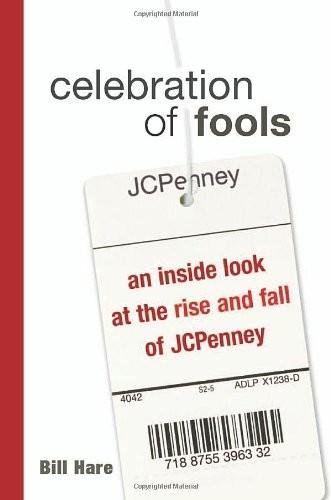
Celebration of Fools: An Inside Look at the Rise and Fall of JCPenney
by Bill Hare · 30 May 2004 · 352pp · 96,692 words
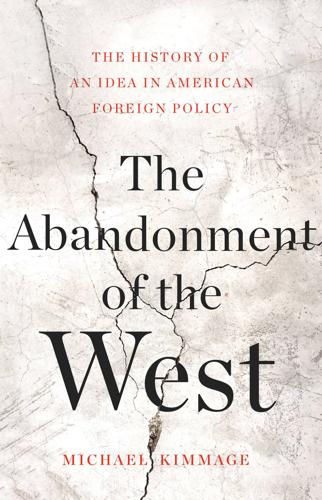
The Abandonment of the West
by Michael Kimmage · 21 Apr 2020 · 378pp · 121,495 words
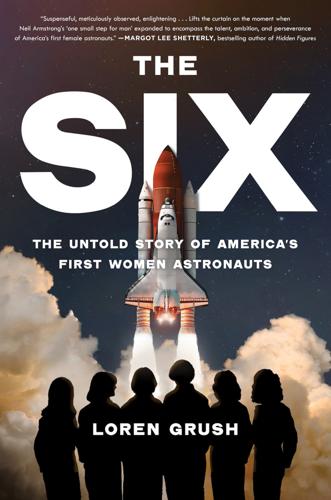
The Six: The Untold Story of America's First Women Astronauts
by Loren Grush · 11 Sep 2023 · 375pp · 127,360 words

Asymmetry
by Lisa Halliday · 6 Feb 2018 · 287pp · 77,181 words
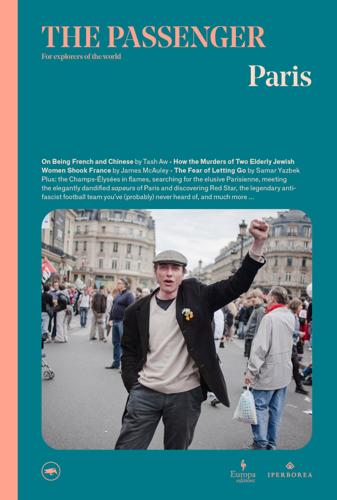
The Passenger: Paris
by AA.VV. · 26 Jun 2021 · 199pp · 62,204 words
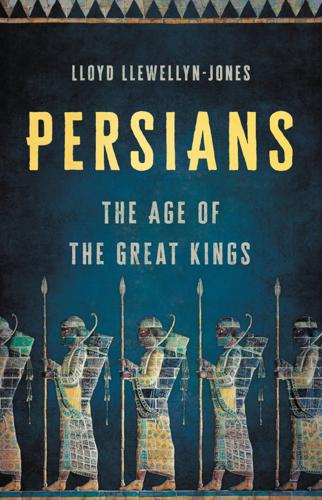
Persians: The Age of the Great Kings
by Lloyd Llewellyn-Jones · 15 Mar 2022 · 444pp · 143,843 words
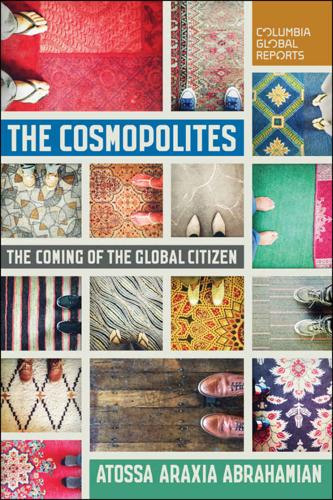
The Cosmopolites: The Coming of the Global Citizen
by Atossa Araxia Abrahamian · 14 Jul 2015 · 138pp · 41,353 words
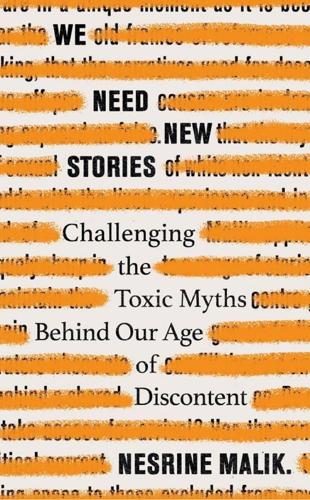
We Need New Stories: Challenging the Toxic Myths Behind Our Age of Discontent
by Nesrine Malik · 4 Sep 2019
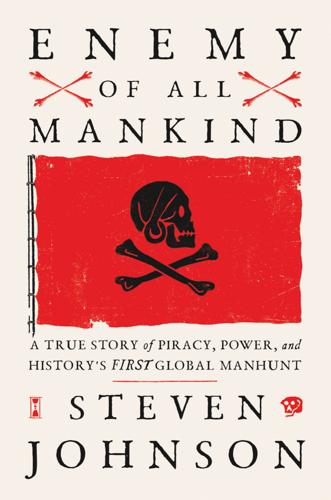
Enemy of All Mankind: A True Story of Piracy, Power, and History's First Global Manhunt
by Steven Johnson · 11 May 2020 · 299pp · 79,739 words
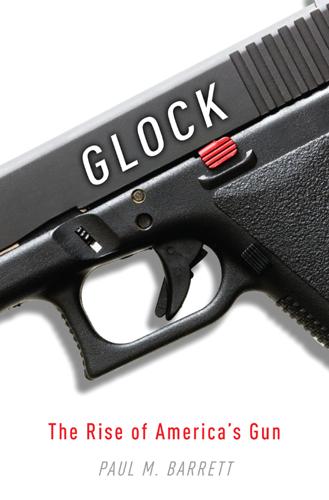
Glock: The Rise of America's Gun
by Paul M. Barrett · 10 Jan 2012 · 249pp · 77,027 words
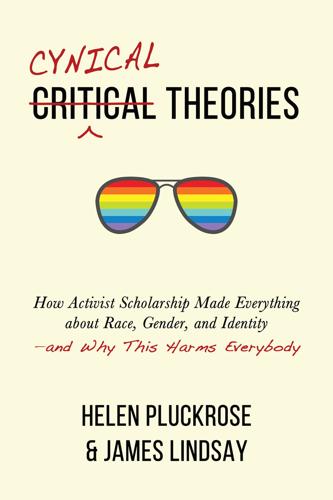
Cynical Theories: How Activist Scholarship Made Everything About Race, Gender, and Identity―and Why This Harms Everybody
by Helen Pluckrose and James A. Lindsay · 14 Jul 2020 · 378pp · 107,957 words
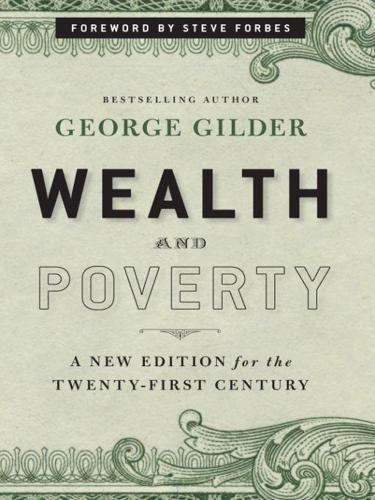
Wealth and Poverty: A New Edition for the Twenty-First Century
by George Gilder · 30 Apr 1981 · 590pp · 153,208 words
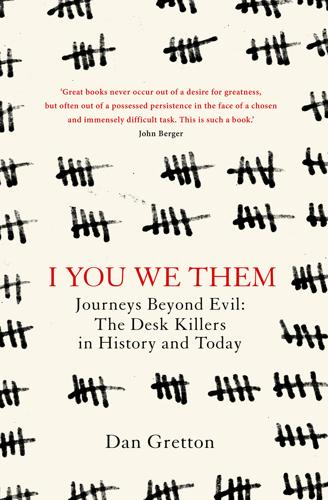
I You We Them
by Dan Gretton
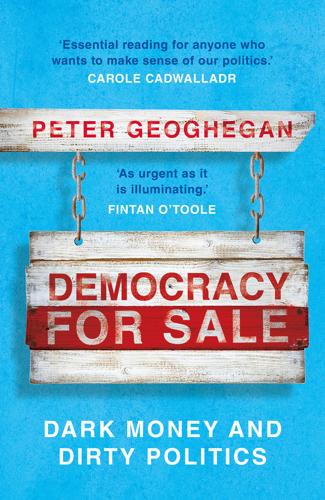
Democracy for Sale: Dark Money and Dirty Politics
by Peter Geoghegan · 2 Jan 2020 · 388pp · 111,099 words
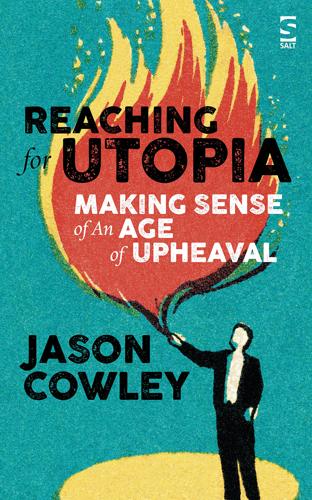
Reaching for Utopia: Making Sense of an Age of Upheaval
by Jason Cowley · 15 Nov 2018 · 283pp · 87,166 words
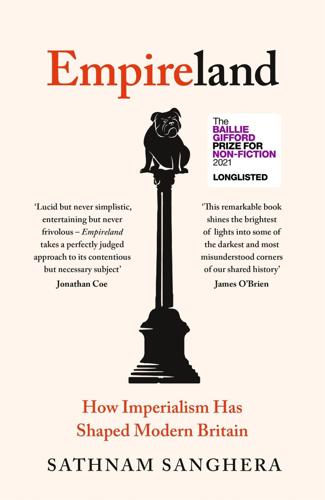
Empireland: How Imperialism Has Shaped Modern Britain
by Sathnam Sanghera · 28 Jan 2021 · 430pp · 111,038 words
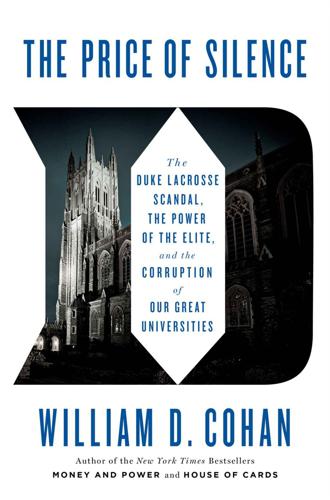
The Price of Silence: The Duke Lacrosse Scandal
by William D. Cohan · 8 Apr 2014 · 1,061pp · 341,217 words